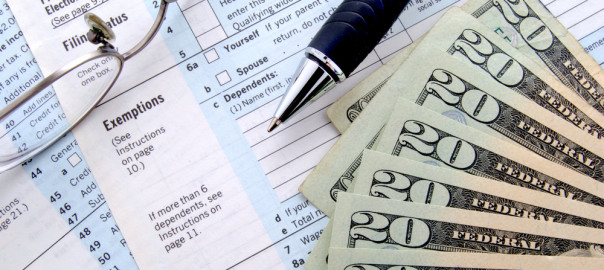How To Approach Your Property Taxes
By Paul Esajian on December 23, 2013
Every time you take a loan out, you have options. In addition to the specific mortgage program and possible down payment amount, you will have the option of putting your property taxes in escrow every month. Doing this will place money in an account that your lender will have access to, as a means of paying your property taxes and homeowners insurance. While this seems to be the simplest thing to do, it may not always be the most financially sound. So what is the best approach to take with your property taxes?
For most people, it is easier to pay a large tax bill in twelve months rather than paying it bi-annually or quarterly. If you default on your tax bill, your town can proceed with the foreclosure process. Since taxes are considered a priority lien, your town can take ownership of your property if you default on your payments. Paying your tax bill on your own requires discipline, but if you can, it does make sense to do so. Your lender receives whatever interest is accrued on your money before making the payment. In some towns where the tax bill is approaching five figures, this could amount to a couple hundred dollars every year. Alone, this is not a large sum of money, but added up over the life of the loan and you could be looking at thousands of dollars.
If you are looking to avoid the large payments a few times a year, you can place money in a separate account or a trust. Make your payments out of this when the tax bill comes. This allows you to control your money, earn interest on it and have confidence that the payments will be made on time. It doesn’t happen often, but there are cases where loans get transferred and tax payments are missed and it becomes a hassle straightening everything out.
Homeowners get in trouble when they fail to put money away for the taxes and are left scrambling to make the payment when the bill comes. Most homeowners would just prefer to escrow the taxes and be done with it. It usually comes down to the individual and how well they are with their money. Every time you take out a mortgage and establish the escrow account, the lender will want to hold at least one full tax payment in that account in addition to the current tax liability. In some closings, you can be looking at as much as nine months of taxes that is added to the closing cost amount. This alone may make it prohibitive to escrow.
Whichever way you want to go with your taxes, know that your tax bill can and usually does change every year. Most towns will reassess every five years or so, but it is not uncommon for taxes to change from year to year. You are not locked into the tax rate you have when you close on the property.
Stay on top of your taxes and always place this bill with the highest of priorities. Deciding how to pay your taxes can save you money over the life of the loan, but it can also come back to bite you if you are not careful.